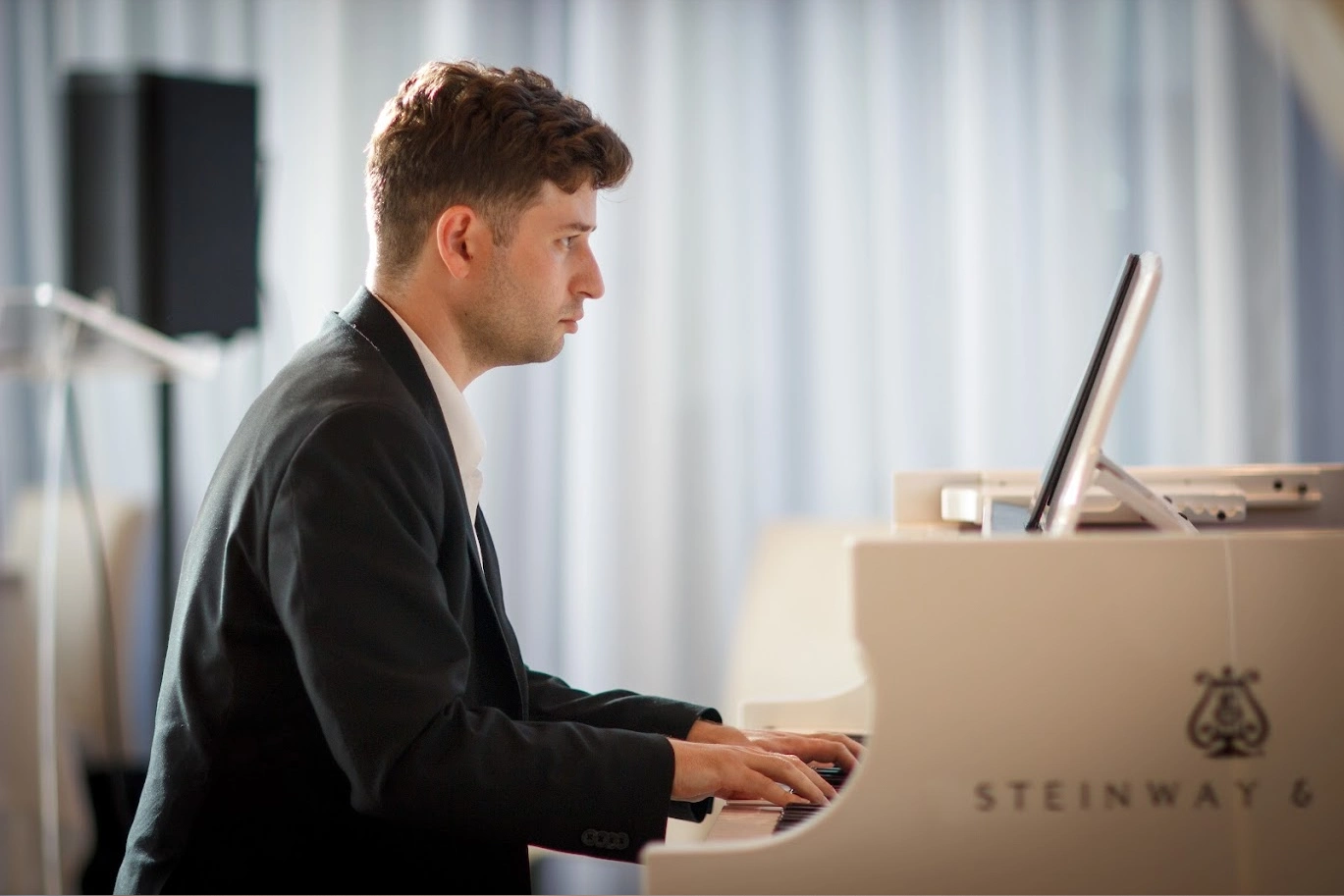Chevalier de Saint-Georges was born on Christmas day, 1745, eleven years before the birth of Mozart. He was born in Guadeloupe, an island above south America, that was a part of the french territories.
Saint-Georges had a white aristocratic father, and a teenage African mother who was a slave in that household.
Being a mulatto at the time meant he could not own lands or businesses. With few opportunities for the young man on the island, his father, who is very fond of him, took him and the mother to Paris, where he sets him up for a life amongst the aristocracy.

A Rising Star
The fathers first move was to put young George at into the top fencing and horsemanship school in Paris.
He immediately masters fencing, and within a few years, becomes almost world renown for his skills.
Next, they arranged for him to have the best musical education, beginning with violin lessons. His skills as a sword fighter seemed to translate to his precision grace and ease with the violin. Within a few short years his reputation as a violinist began to outdo his fame as a swordsman. Growing as a musician, he became the conductor of the Le Concert Olympique, probably the best orchestras in Paris at the time. Among his accomplishments as a conductor, was to commission Hayden for six symphonies which he then premiered and conducted!

Prolific Composer, Educator
Stravinsky, one of the greatest composers of the 20th century, and especially known for his work “Rite of Spring”, was 36 when
All along the way, he was writing music. He is best known for his violin sonatas and symphonies, but over his career he was very prolific, composing hundreds of works including large scale operas. His rising career led him to the palace of Marie Antoinette, where he became her private music instructor. Marie and George practiced his violin sonatas together, with him playing the violin and her playing the piano.
When he was 33 year old, George encountered Mozart who also stayed briefly in Maria Antoinettes palace. Mozart would have looked up to George, who at the time was much more famous and successful.

Experiencing Racism
Despite being a famous musician, George was denied opportunities he absolutely deserved based on his racial background. In 1776 the Academie royale, (Paris Opera), briefly considered him as their next director. He really was the strongest candidate at the time. Three leading female opera singers presented a petition to block Saint George's appointment because of his race, and unfortunately succeeded. He also spent 13 months in prison without a cause. While this was related to a wartime scenario, it appears others with him where released immediately, and he is certainly not treated well or equally.

Influence on Mozart's Music
We can’t help but notice the similarities between Mozart’s music and Saint-Georges. It is not just the style of the time, but there is a deeper similarity. Examining more detail, we even see what looks like exact copying. Shortly after Mozart met George and heard his music, he writes his famous Symphony Concertante for viola and violin. This piece contains a passage that is specific to the innovation and style of Saint George’s music, the Concerto op.5 no. 2. In Mozarts work, written months later, a certain passage is actually just identical.
We are not certain of the extend of the influence from Saint George’s music on Mozart, but we are certain that Saint George deserves a lot more recognition historically. His skills as a composer are without doubt, on an equal par with any of the well known names of history.
Please take a listen to the above video of his work, Symphony no. 1 in G major, Allegro.
For those who want to learn more about Saint-Georges, this is an excellent documentary: https://www.youtube.com/watch?v=AvQMG7Cl7hM
.svg)
.svg)
.svg)
.svg)
.svg)
.svg)





.svg)